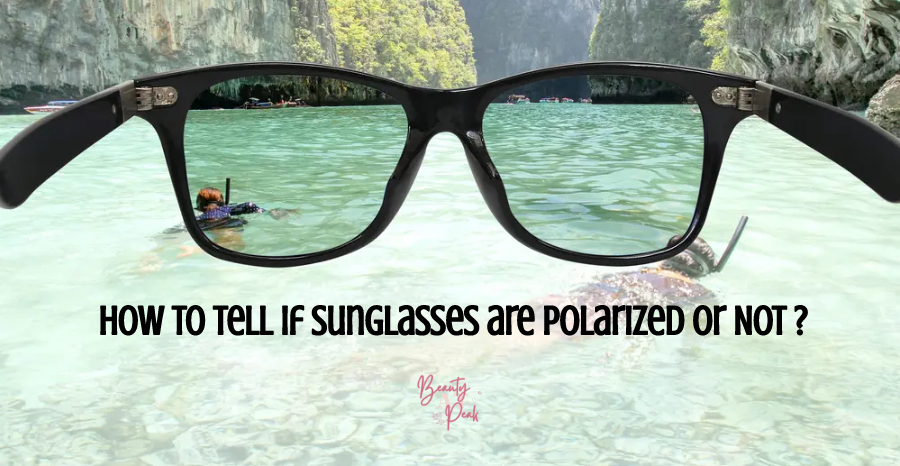Sunny days call for stylish eyewear that not only protects your eyes from harmful UV rays but also give look to your outfit. Polarized sunglasses have become a staple accessory for individuals seeking protection and comfort in bright, sunny conditions. But what exactly are polarized sunglasses, and why are they essential?
What are polarized sunglasses?
Polarized sunglasses are specially designed eyewear that helps reduce glare caused by sunlight reflecting off surfaces like water, roads, and snow. Unlike regular sunglasses, which merely darken the overall view, polarized lenses are equipped with a special filter that blocks intense reflected light, providing clearer vision and enhanced visual comfort.
What does polarized sunglasses mean?
let’s delve into the science behind polarization. When sunlight hits a surface, it becomes polarized, meaning the light waves align in a specific direction. This polarized light creates glare, which can be particularly bothersome when engaging in outdoor activities like driving, fishing, or skiing.
How Do Polarized Sunglasses Work?
Polarized lenses contain a laminated filter that selectively blocks horizontal light waves, effectively neutralizing glare and reducing eye strain. By filtering out polarized light, these lenses enhance visual clarity and contrast, allowing wearers to see more clearly in bright conditions.
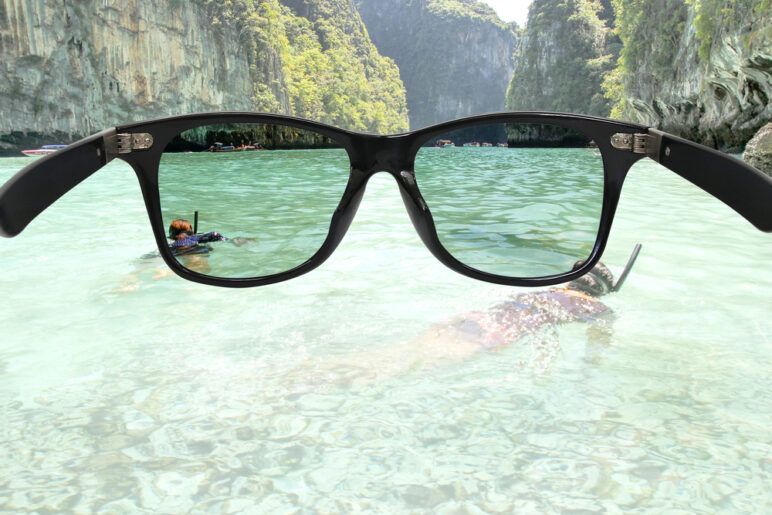
Polarized vs Non-Polarized Sunglasses
| Feature | Polarized Sunglasses | Non-Polarized Sunglasses |
| Polarization | Polarized lenses contain a special filter that blocks horizontal light waves, reducing glare from surfaces like water, roads, and snow. | Non-polarized lenses do not have a specialized filter for glare reduction, allowing reflected light to pass through. |
| Glare Reduction | Significantly reduces glare, providing clearer vision and enhanced comfort, especially in bright, sunny conditions. | Reduces overall brightness but does not eliminate glare, leading to potential discomfort and eye strain in intense sunlight. |
| UV Protection | Many polarized sunglasses are equipped with UV-blocking coatings, offering protection from harmful UVA and UVB rays. | Like polarized sunglasses, non-polarized options often include UV protection, shielding the eyes from the sun’s damaging rays. |
| Enhanced Clarity and Contrast | By filtering out glare, polarized lenses enhance visual clarity and improve contrast perception, making objects appear sharper. | While they do not provide the same level of glare reduction, non-polarized sunglasses still offer clarity and contrast enhancement in bright conditions. |
| Reduced Eye Fatigue | Minimizes the need for squinting and reduces eye strain by minimizing glare, allowing for more comfortable and extended wear. | Although they may not offer the same glare reduction benefits, non-polarized sunglasses still contribute to reduced eye strain in bright environments. |
Both types of sunglasses have their advantages and are suitable for different preferences and activities. Polarized sunglasses excel in reducing glare and enhancing visual clarity, making them ideal for outdoor enthusiasts and those frequently exposed to bright sunlight. On the other hand, non-polarized sunglasses offer affordability and versatility, suitable for a wide range of indoor and outdoor activities where glare reduction is not a primary concern.
How to Tell if Sunglasses Are Polarized ?
If you’re unsure whether your sunglasses are polarized, there are a few simple tests you can perform:
- Rotate the sunglasses: Polarized lenses block horizontal light waves, so rotating them should affect the intensity of glare.
- Use a polarization tester: Specialized tools are available to test the polarization of sunglasses accurately.
- Look for a polarized sticker: Many manufacturers label their polarized sunglasses with a sticker or emblem for easy identification.
Benefits of Polarized Sunglasses
The benefits of polarized sunglasses extend beyond glare reduction. By blocking harmful UV rays and minimizing eye strain, these sunglasses offer:
- Enhanced clarity and contrast: Polarized lenses sharpen visual acuity, making objects appear clearer and more defined.
- Reduced eye fatigue: By minimizing glare, polarized sunglasses reduce the need for squinting, preventing eye fatigue and discomfort.
- UV protection: Many polarized sunglasses are equipped with UV-blocking coatings, shielding the eyes from both UVA and UVB rays.
How to Choose the Best Polarized Sunglasses?
- Lens quality: Look for lenses made from durable materials with scratch-resistant coatings.
- Frame style: Choose a frame that complements your face shape and offers a comfortable fit.
- Brand reputation: Opt for reputable brands known for their quality craftsmanship and UV protection standards.
What Ophthalmologist Says about Polarized Sunglasses ?
According to ophthalmologist Tongalp Tezel, polarization and UV protection are not interchangeable. While polarization helps alleviate glare, UV protection is essential for safeguarding eye health. Dr. Tezel emphasizes the importance of wearing sunglasses that offer both polarization and UV protection, especially during peak sun exposure hours. Worst Times of Day for Sun Exposure
To minimize sun damage to your eyes, avoid prolonged exposure during peak sun hours, typically between 8 a.m. and 10 a.m., and 2 p.m. and 4 p.m. During these times, the sun’s angle is lower, increasing the risk of direct eye exposure to harmful UV rays.
Trending Polarized Sunglasses
Several polarized sunglasses have gained popularity in recent years, offering innovative features and stylish designs. Among the trending models are:
MAUI JIM KOKO HEAD POLARIZED PLUS SUNGLASSES
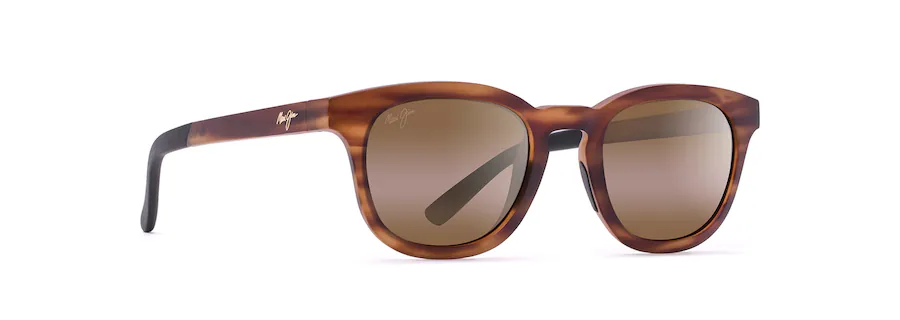
Image Source : mauijim.com
MEETSUN POLARIZED RETRO SUNGLASSES
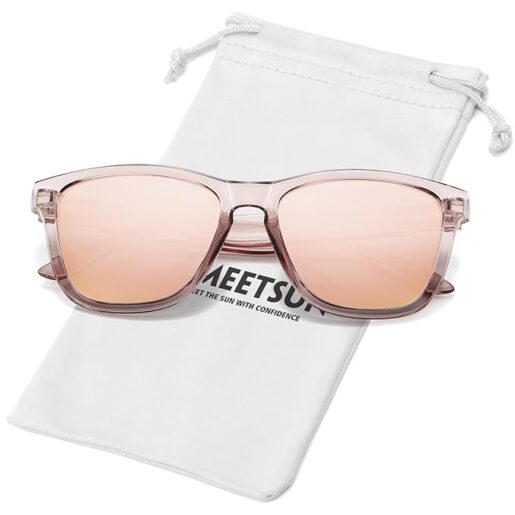
WEEFARERS SUNGLASSES
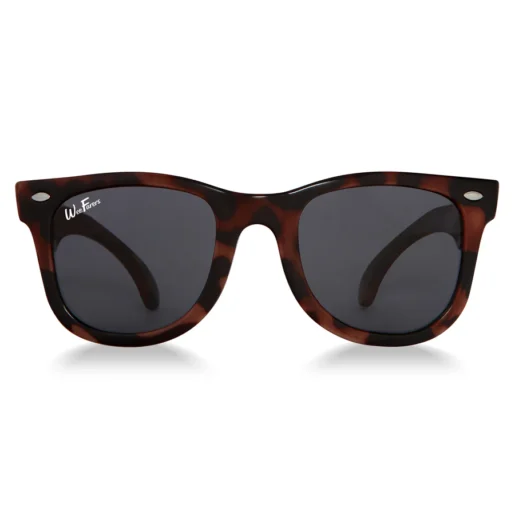
Image Source : weestyle.com
PAIR EYEWEAR CUSTOMIZABLE SPARKLE FRAMES
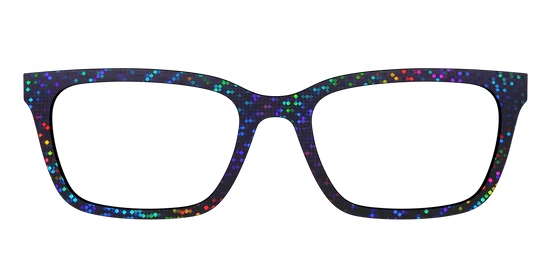
Image Source : paireyewear.com
Each of these sunglasses boasts unique attributes, ranging from advanced lens technology to customizable frames, catering to diverse consumer preferences.
Are Polarized Sunglasses for Men or Women ?
Polarized sunglasses come in a variety of styles tailored to different preferences of men and women. Whether you’re a fashion-forward trendsetter or an outdoor enthusiast, there’s a pair of polarized sunglasses for you. Popular styles include aviators, wayfarers, and wraparound frames, each offering a unique blend of style and functionality.
Conclusion
In conclusion, polarized sunglasses are an indispensable accessory for anyone spending time outdoors. By reducing glare, enhancing clarity, and providing UV protection, these sunglasses offer both functional and aesthetic benefits. When choosing polarized sunglasses, prioritize quality, comfort, and UV protection to ensure optimal eye health and visual comfort. for more informational post visit : beautyatpeak
FAQs
Which is better: polarized or UV protection?
While both polarized and UV protection are essential for eye health, they serve different purposes. Polarized sunglasses reduce glare and enhance visual clarity, particularly in bright conditions, while UV protection shields the eyes from harmful UV rays. Ideally, choose sunglasses that offer both polarized lenses and UV-blocking coatings for comprehensive eye protection.
Which glasses are best for night driving?
For night driving, it’s recommended to opt for glasses with clear or lightly tinted lenses to maintain optimal visibility. Avoid wearing polarized sunglasses at night, as they can reduce the visibility of certain objects and make it harder to see in low-light conditions.
Which sunglasses are best for day and night?
Transitional lenses, also known as photochromic lenses, are a versatile option for day and night use. These lenses darken in response to sunlight exposure and lighten when indoors or at night, providing optimal vision in various lighting conditions without the need to switch between multiple pairs of glasses.
What color polarized lens is best for driving?
For driving, neutral-colored polarized lenses, such as gray or brown, are often recommended. These colors provide natural color perception and minimize distortion, allowing for clear vision on the road. Additionally, polarized lenses with an anti-reflective coating can further reduce glare from headlights and other reflective surfaces.
What color polarization is best?
The best color polarization depends on personal preference and the intended use of the sunglasses. Gray lenses offer true color perception and are suitable for various outdoor activities. Brown lenses enhance contrast and depth perception, making them ideal for driving and sports. Green lenses provide excellent contrast and are particularly effective in low-light conditions. Ultimately, choose the lens color that suits your visual needs and preferences.

